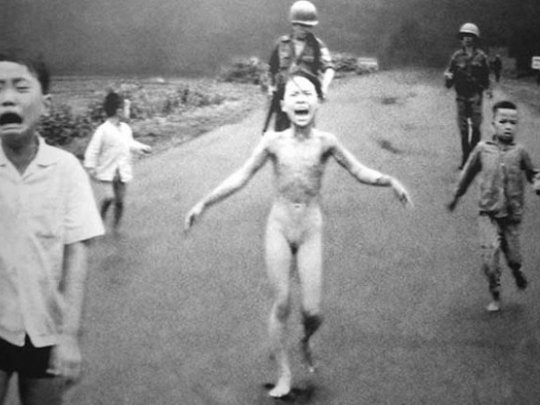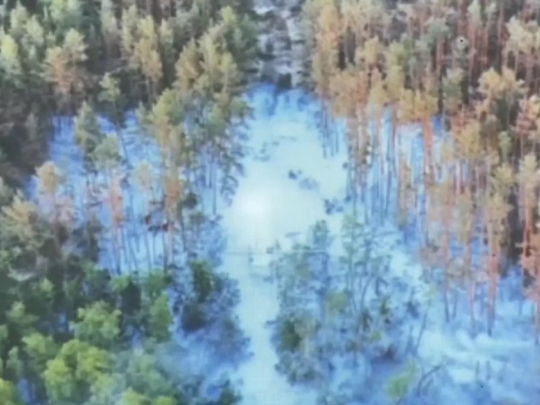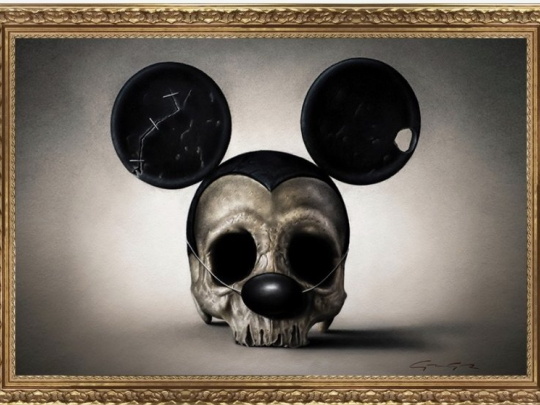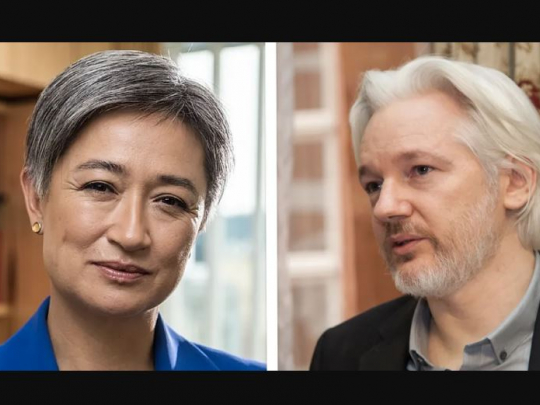Not learning from history

I confess that I am never too busy to take part in an argument on Facebook. I join any number of what I perceive to be interesting fora, on many topics and then, as they say, I get ‘stuck in’.
Recently an administrator of one of my currently favourite forums was reported to Facebook by one of the other members. His crime was to post a photograph of a young naked girl running down a road.
On the face of it you might think that is fair enough these days when even an un-gloved hand can give offence.
However, in this case the photograph in question was Napalm Girl from Vietnam and the point of its use was to explain how important photographs remain in shaping public opinion by comparing Napalm Girl to the more recent Dead Infant on the beach. Both photos significantly changed government strategy by creating massive groundswells of public opposition to current policy. We are seeing the effects of Dead Infant right now across Europe. Of course Napalm Girl, in combination with the events at My Li, helped overturn the American public’s fragile support for the war in Vietnam and led inevitably to the footage of the last chopper leaving Saigon.
I say ‘of course’ because I’m old enough to have seen the footage of Napalm Girl at the time it was originally broadcast. I have always assumed its timeless significance in western liberal culture. I was wrong.
As discussion raged on the forum it became clear that most of the participants had no knowledge of Napalm Girl, My Li or the Vietnam War in general. Most of them simply did not understand that the girl was running down the road, naked, because the napalm jelly had burned away all her clothes and was searing its way into her skin. Most of them had never even heard of napalm and they didn’t recognise the nature and seriousness of the girl’s injuries. To them she was a naked girl on display in our age of political correctness, in the context of the endlessly publicised sexual exposure and abuse of children.
At first I was astonished by my correspondents’ apparently extraordinary level of ignorance. How could they not know anything about such a core historical and cultural event? But I’ve come to realise that it’s my problem. Why should images and events that have stayed with me for decades hold any relevance for younger people for whom the Vietnam War and all its baggage holds no meaning?
The fact is that my context, the lens through which I’ve witnessed and stored my life’s experiences, is different from theirs and I’m only now old enough to realise that this has always been the case. That is the simple answer to the question, ‘Why do we never learn from history?’ We don’t learn from history because the overwhelming majority of us do not care about things and events that have happened before our particular ‘time’ and beyond our personal experience.
Napalm is now banned and is therefore rarely used, so people younger than I have never seen its effects. It is also clear that they have seen neither Coppola’s Apocalypse Now nor John Wayne’s The Green Berets, but that is an issue for another essay.
Commentators often complain that we have more information than ever and yet we are clearly becoming dumber and dumber. Actually, I don’t remember us all sitting quietly in our public libraries reading about the First Crusade or the English Civil War before the advent of smart phones, tablets and boundless internet. Professors Steven Runciman and Christopher Hill were never household names and their work is even less well-known than napalm. In fact, nothing has changed with regard to our being generally dumb. We simply know more about the little we always knew.
I’m afraid that we do not learn from history, we learn from personal experience gained during the time that we are on earth. Sadly this seems to be true at all levels of society. People continue to drink and smoke and break their legs on expeditions to the Alps or on the rugby field. Businessmen go bankrupt in large numbers and banks tend to repeatedly have no concept of risk. Politicians carry on as if there had never been crises and war until right now. The blankest of George W. Bush’s stares was reserved for the moment he when was asked if he thought that his invasion of Iraq would suffer the same fate as the USA’s involvement in Vietnam.
My recent experience on Facebook has forced a fundamental change in my perspective, probably for the better. So I have concluded that I can no longer consider myself to be living in a particular time. Rather, I now see that I am living simply in my time.

- Source : Ronnie Smith















